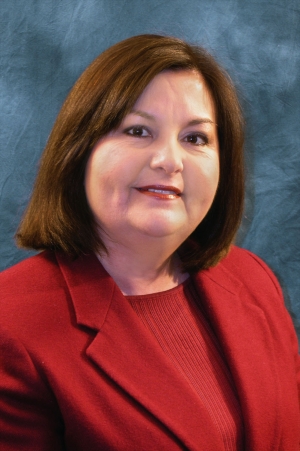Aranda Warns Congress of Geriatric Workforce Crisis
November 30, 2012 / by Vincent Lim- Research
Maria Aranda, an associate professor at the USC School of Social Work and core faculty of the USC Edward R. Roybal Institute on Aging, presented findings from a recent Institute of Medicine report commissioned by Congress on the state of the geriatric mental health and substance abuse workforce at a Capitol Hill briefing co-sponsored by the National Association of Social Workers in Washington, D.C.
Aranda, a licensed social worker, researcher and educator, was one of only two social workers selected to serve on the IOM committee on the Mental Health Workforce for Geriatric Populations that contributed to the report The Mental Health and Substance Use Workforce for Older Adults: In Whose Hands? In it, the committee underscores the largely unknown and growing crisis of mental illness and substance abuse among America’s older adult population.
The report examined the oftentimes neglected part of the health equation and the associated workforce issues.
“Mental healthcare has been the ‘step child’ of healthcare overall in this country,” Aranda said. “Mental health and substance abuse conditions are frequently viewed with stigma and marginalization by providers and people in general.”
That stigma along with limited opportunities for healthcare specialization, as well as a lack of support and mentorship for professionals and students interested in working with older populations, has led to a dearth of services and professionals with the necessary training to treat older patients with mental health and substance abuse issues.
The current payment rules for Medicare and Medicaid are another obstacle to providing services and building the workforce.
“The current funding mechanisms for payment for mental health and substance abuse conditions have deterred providers from offering needed care,” Aranda said. “This is due to the reimbursement rules for Medicaid and Medicare, which are usually lower or nonexistent for many of the screening, treatment and recovery programs for geriatric mental health and substance abuse conditions.”
One of several recommendations in the report calls for a change in the Medicare and Medicaid payment system to guarantee coverage for more services to treat mental health and substance abuse in this growing population.
The demand for those services is predicted to increase. One of the committee’s major findings anticipates a greater number of older adults with dementia and related behavioral and psychological conditions in the future. The use of illicit drugs among this population is also expected to increase in the near future as baby boomers in their 50s, whose rates of illegal drug use are higher than in previous generations, grow older.
Several evidenced-based treatment delivery programs were highlighted in the report showing that geriatric care works, particularly in the areas of depressive disorders and alcohol use. These programs call for re-engineering the current workforce to respond to the demands of complex medical and psychiatric conditions in older populations from diverse ethnic, racial and linguistic communities.
Improving formal education and growing the workforce are a critical part of addressing the mental health and substance abuse problems facing this population, but providing more ongoing training and support for all healthcare workers, including primary care physicians, psychiatrists, nurses, social workers, and other disciplines, is needed as well. Providing support for family caregivers cannot be neglected either.
“I was extremely happy to see that family members who provide 70 to 80 percent of the workforce for older adults incorporated into the definition of the workforce,” Aranda said. “They are the silent heroes of the geriatric workforce, many who do not receive any remuneration for their work but work day-to-day with older adults with very complex health, mental health and substance abuse problems.”
An AARP study estimated the economic value of family caregivers’ unpaid contributions to be $450 billion in 2009, and research has shown that there are benefits to offering training, education and support for family caregivers for both the carer and the one being cared for.
The Congressional briefing was co-sponsored with the American Association of Geriatric Psychiatrists and the American Psychological Association.
Aranda holds a joint appointment at the USC Davis School of Gerontology and has served on local and national boards and committees dedicated to the enhancement of practice, policy, research and advocacy related to underserved minority and older adult populations. This year, she was elected a fellow with the Gerontological Society of America and was presented with the California Elder Mental Health and Aging Coalition’s Older Adult Leadership and Advocacy Award at the 2012 California Association of Area Agencies on Aging Annual Meeting and Allied Conference.
To reference the work of our faculty online, we ask that you directly quote their work where possible and attribute it to "FACULTY NAME, a professor in the USC Suzanne Dworak-Peck School of Social Work” (LINK: https://dworakpeck.usc.edu)
